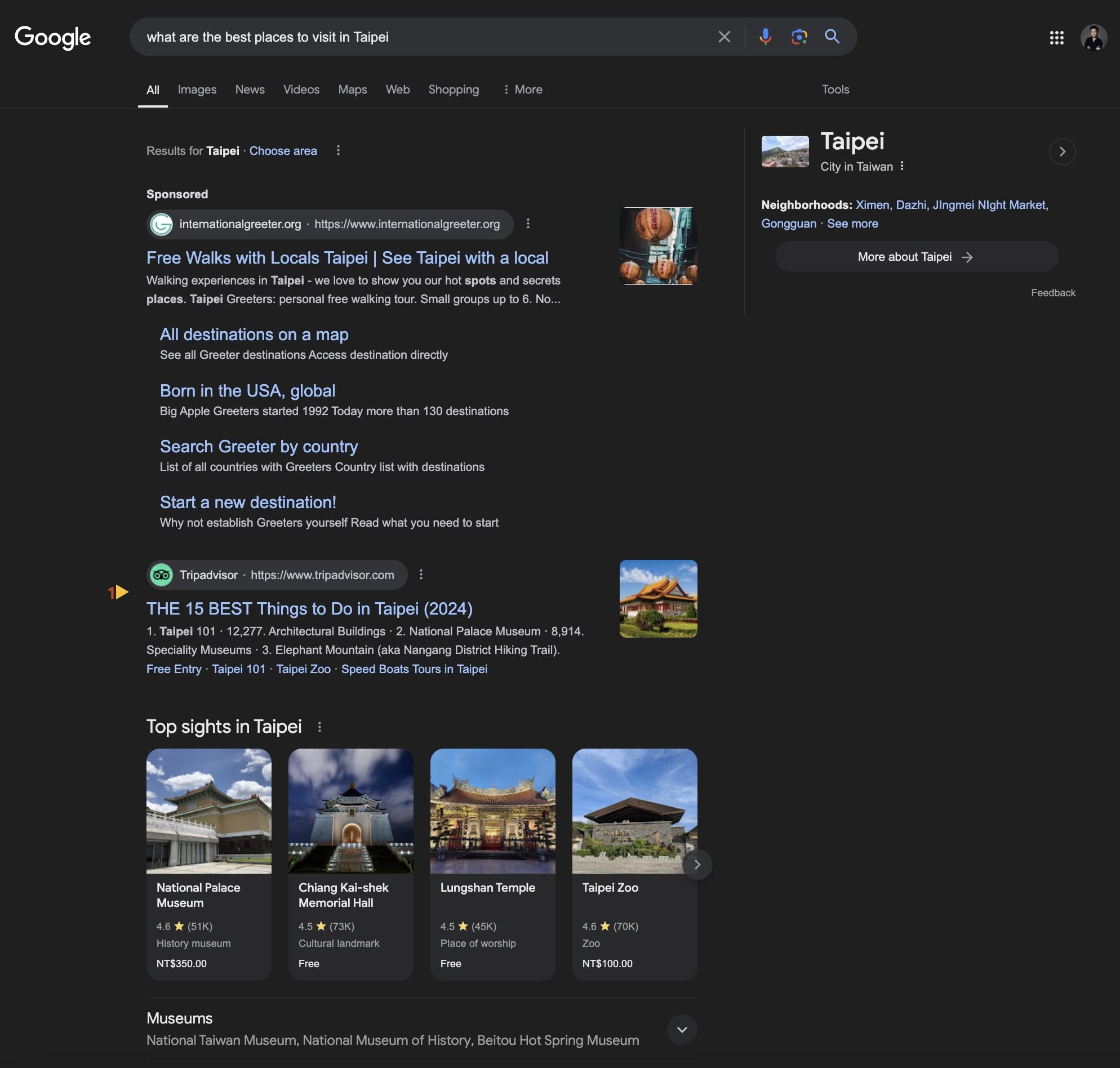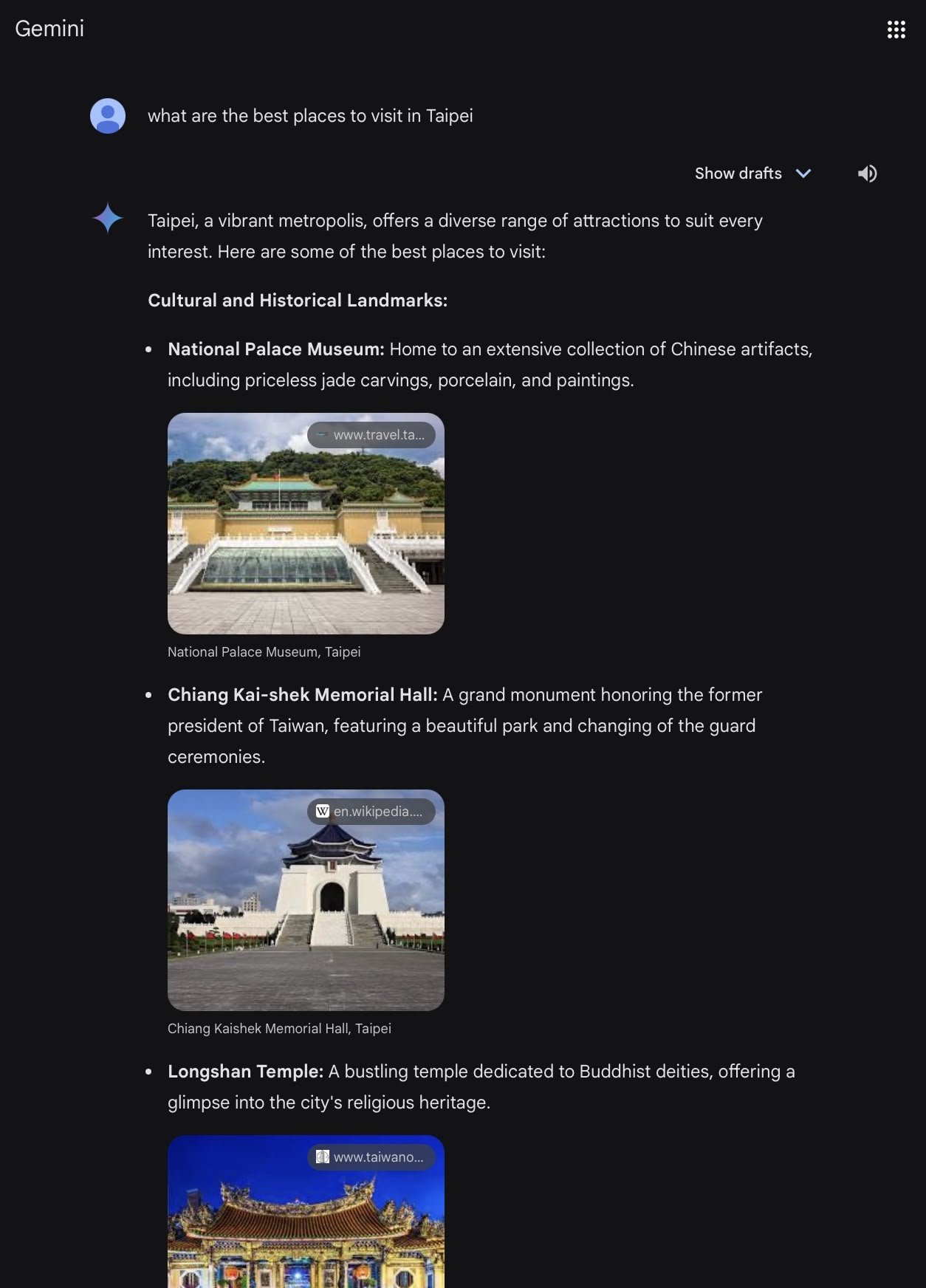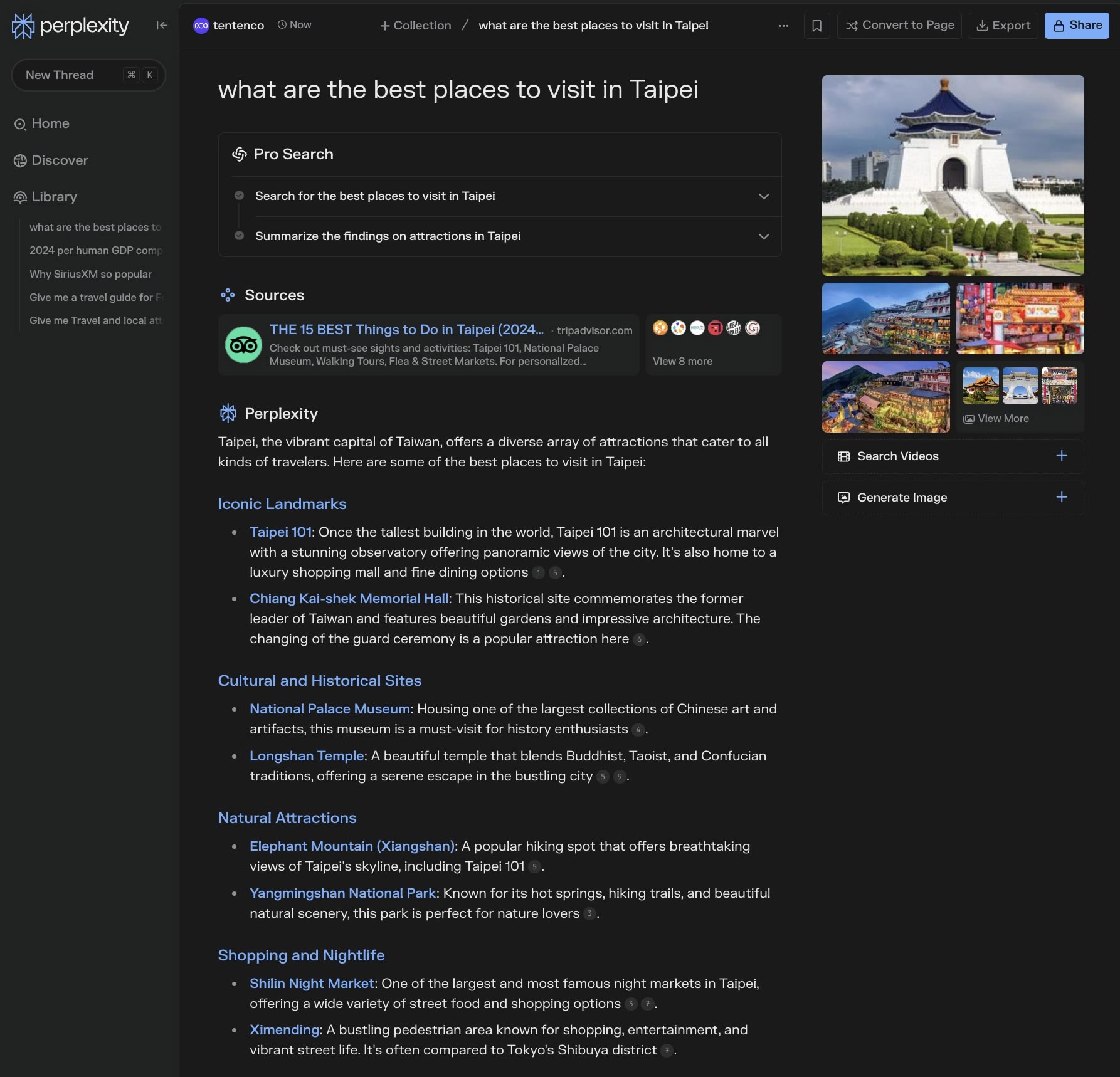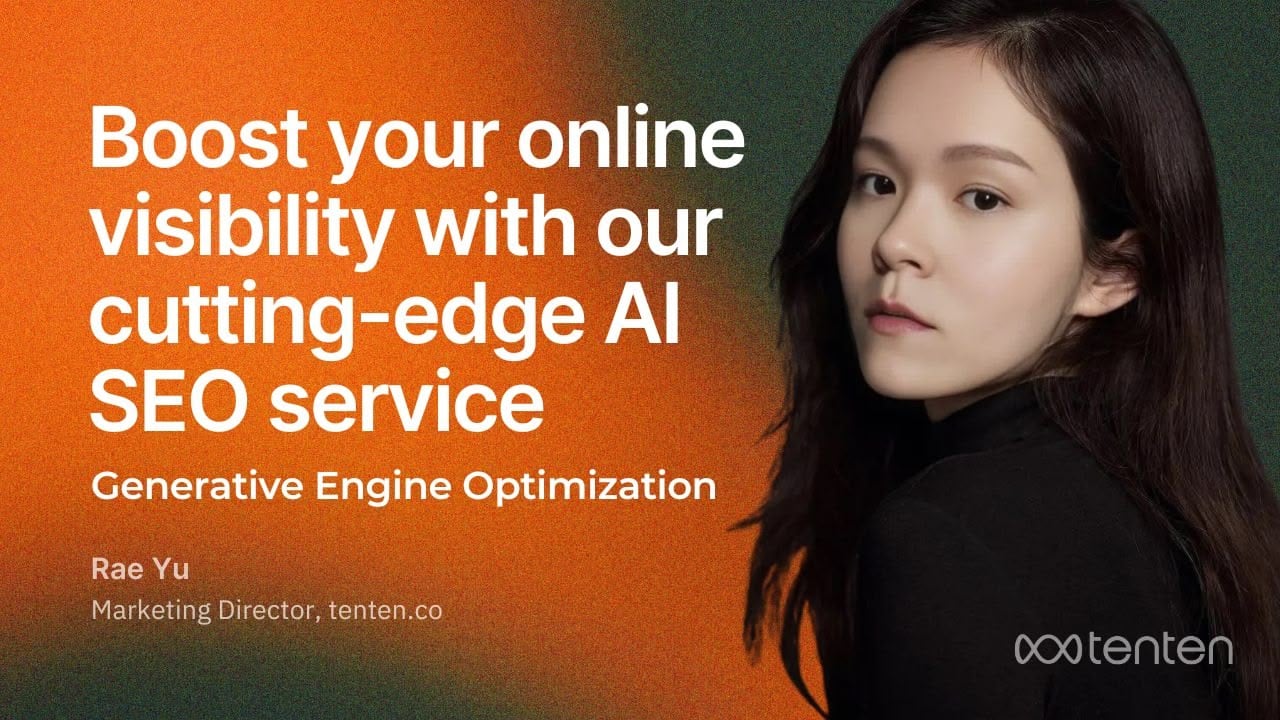SEO vs. GEO: The Future of Search Engine Optimization
 Ewan Mak
Ewan Mak
Visualize your website as a treasure chest, concealed in the boundless digital sea. How do you ensure that explorers uncover your valuable trove? This is where Generative Engine Optimization (GEO) and Search Engine Optimization (SEO) take the stage, offering distinct methodologies to amplify your website's visibility and traffic.
Generative Engine Optimization (GEO) and Search Engine Optimization (SEO) represent two indispensable strategies in the digital arena. However, each operates with its own unique approach to enhancing online presence.
With the evolution of the search space, SEO’s role has transformed. Now, GEO is positioned to redefine the landscape of search engine optimization.
While SEO hinges on conventional techniques like keywords and backlinks, GEO taps into the prowess of AI and machine learning to generate dynamic, audience-aligned content.
Let’s delve into the nuances of GEO and SEO and understand how they diverge.
What is SEO?
SEO, or Search Engine Optimization, is the practice of fine-tuning a website to elevate its presence in search engine results pages (SERPs), including Google, Bing, and Yahoo. SEO involves a spectrum of techniques—keyword analysis, content refinement, link-building, and technical improvements—to make a website more enticing to both search engines and users. Its core objective is to drive organic traffic by securing higher rankings for relevant search queries.
SEO optimizes keywords and content to boost visibility in SERPs like Google and Bing.
What is GEO?
Generative Engine Optimization is an emerging concept tailored for AI-driven search engines, or generative engines. GEO intertwines traditional SEO tactics with a profound understanding of how generative AI models prioritize content. This strategy centers on real-time content creation, tailored to user interactions, preferences, and intent. GEO scrutinizes vast datasets to produce highly relevant, engaging material, considering user behavior, demographics, and interests. The aim is to ensure content is not only discovered but also accurately interpreted and ranked by AI-enhanced search engines.
GEO optimizes content to increase its visibility in the responses generated by AI-driven engines.
Now, let’s dissect the key differences between Generative Engine Optimization and Search Engine Optimization:
Key Differences Between GEO and SEO
While both GEO and SEO strive to elevate online visibility, they operate on distinct principles. SEO targets static optimization, whereas GEO thrives on dynamic, user-focused content creation.
1. Target Audience
SEO: Geared toward traditional search engines that present websites in response to user queries.
GEO: Aimed at AI-driven engines that generate comprehensive, direct responses.
2. Keyword Usage
SEO: Emphasizes keyword research and strategic placement to align with search queries.
GEO: Moves away from rigid keywords, leveraging natural language processing (NLP) to comprehend query context.
3. Content Creation
SEO: Centers on content development informed by keywords, competitor analysis, and SEO metrics.
GEO: Prioritizes engaging, conversational content that directly addresses user queries.
4. Optimization Approach
SEO: Targets keyword density, meta tags, technical optimization, backlinks, and content length to enhance search rankings.
GEO: Focuses on content quality, relevance, and citations, aiming to directly answer queries for AI-driven engines.
5. User Experience
SEO: Aims to enhance website performance through factors like loading speed, mobile compatibility, and user-friendly navigation.
GEO: Strives to deliver high-quality, relevant answers that precisely address user queries.
6. Technological Framework
SEO: Relies on tools like Google Analytics, Search Console, Ahrefs, and Semrush to monitor rankings and performance.
GEO: Harnesses AI and machine learning to predict user intent and generate content in real-time.
Note* - SEO strategies can be applied universally across all types of content and domain, while GEO strategies may vary depending on the domain.
Let’s check out a sample of a search query - “*what are the best places to visit in Taipei”, and you can clearly see a difference in the response style of Google Search Engine and Gemini AI.

Google Generated Result


Gemini Generated Result

Perplexity Generated Result
The first image is for the results generated on Google which displays the list of websites and people also ask questions based on the traditional SEO strategies followed by the websites to rank higher.
On the other hand, the second image shows the response generated by Gemini, which is more precise, directly answers the query, includes a citation, is comprehensive and looks more like a conversation.
These differences clearly illustrate that focus of content optimization is shifting. Earlier, from focusing and attracting search engines through various SEO strategies to now providing a concise, valuable, and directly answering the queries in GEO using AI technology.
Comparison of SEO (Search Engine Optimization) and GEO (Generative Engine Optimization):
| Feature | SEO | GEO |
| Focus | Traditional search engines (Google, Bing) | AI-driven search engines (ChatGPT, Google SGE) |
| Techniques | Keyword optimization, backlinks, content quality | Content optimization for AI processing, generative content |
| Objective | Improve visibility and ranking in search results | Maximize relevance and context for AI responses |
| Target Audience | Search users looking for specific information | Content creators and marketers targeting AI systems |
| Content Strategy | Focused on user behavior, search trends | Emphasizes quality and context over keywords |
| Adaptability | Stable but slow to adapt | Rapid adaptation to evolving AI technologies |
| Content Creation | Human-driven, based on keyword research[2] | AI-assisted, focusing on comprehensive answers[2] |
| Scalability | Can be labor-intensive and time-consuming[3] | More scalable due to automated processes[3] |
| User Experience | Aims for broad audience engagement[3] | Delivers highly personalized experiences[3] |
| Metrics | Click-through rates, bounce rates, time on page[4] | Impression metrics, citation visibility in AI responses[4] |
| Technology Use | SEO tools for rankings and keyword analysis[5] | AI and machine learning for content generation and optimization[5] |
| Content Structure | Emphasis on skimmable content with clear headings[2] | Layered content with depth for AI parsing[2] |
Interested in GEO (Generative Engine Optimization) services?

Boost your online visibility with our cutting-edge GEO AI SEO service. Harness the power of Generative Engine Optimization to skyrocket your search rankings and drive organic traffic. Don't let your competitors outpace you – take control of your digital presence today. Click now to schedule a free consultation and see how GEO can transform your online success. - Book a free consulting with us today!
Conclusion
A new era of digital search is upon us, and Generative Engine Optimization is reshaping how content is optimized, discovered, and consumed. Yet, this doesn’t spell the end for SEO.
Both SEO and GEO remain pivotal strategies for improving website visibility, catering to different search engines and user needs. As AI-driven search engines evolve, content creators, SEO specialists, and marketers must adapt. The focus should remain on producing authoritative, high-quality content that resonates with both traditional and AI-driven search engines.
FAQs
1. What is the main difference between GEO and SEO?
The key distinction lies in their approach to content creation. SEO uses traditional techniques such as keywords and links, while GEO employs AI to craft personalized, user-driven content.
2. Is GEO more effective than SEO?
Effectiveness depends on your goals. GEO offers personalized content on AI-driven platforms, while SEO focuses on visibility on SERPs like Google. The choice hinges on whether you prioritize tailored experiences or long-term visibility.
3. Can GEO and SEO be used together?
Absolutely! Combining GEO and SEO can amplify online presence. SEO attracts visitors, while GEO tailors content to meet individual needs. Together, they create a more engaging, effective strategy.
4. Will GEO replace SEO?
While AI-driven engines are on the rise, traditional search engines will still play a crucial role. GEO won’t replace SEO entirely, but search engine traffic may shift as AI platforms gain popularity.
Subscribe to my newsletter
Read articles from Ewan Mak directly inside your inbox. Subscribe to the newsletter, and don't miss out.
Written by

Ewan Mak
Ewan Mak
Crafting seamless user experiences with a passion for headless CMS, Vercel deployments, and Cloudflare optimization. I'm a Full Stack Developer with expertise in building modern web applications that are blazing fast, secure, and scalable. Let's connect and discuss how I can help you elevate your next project!